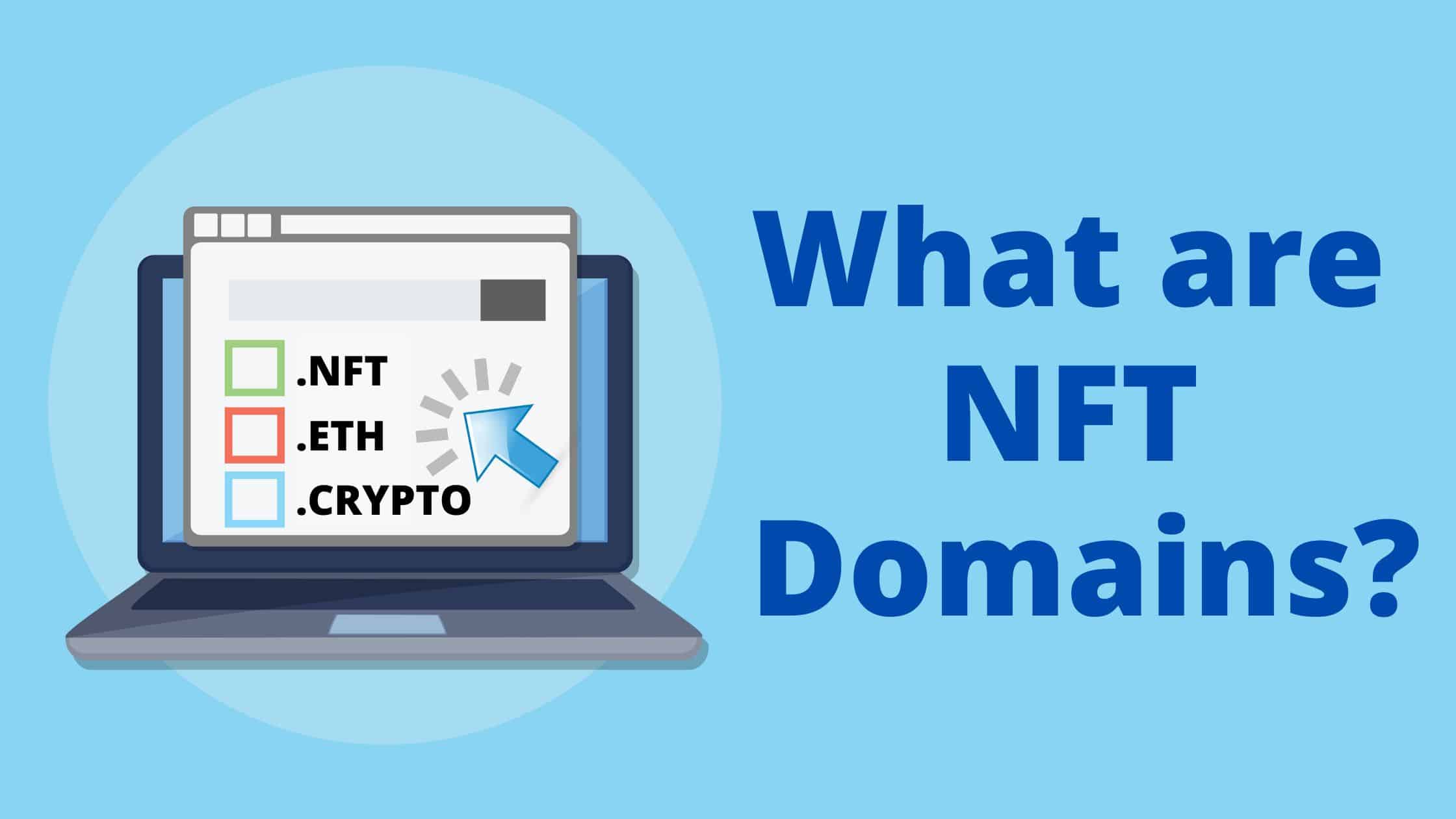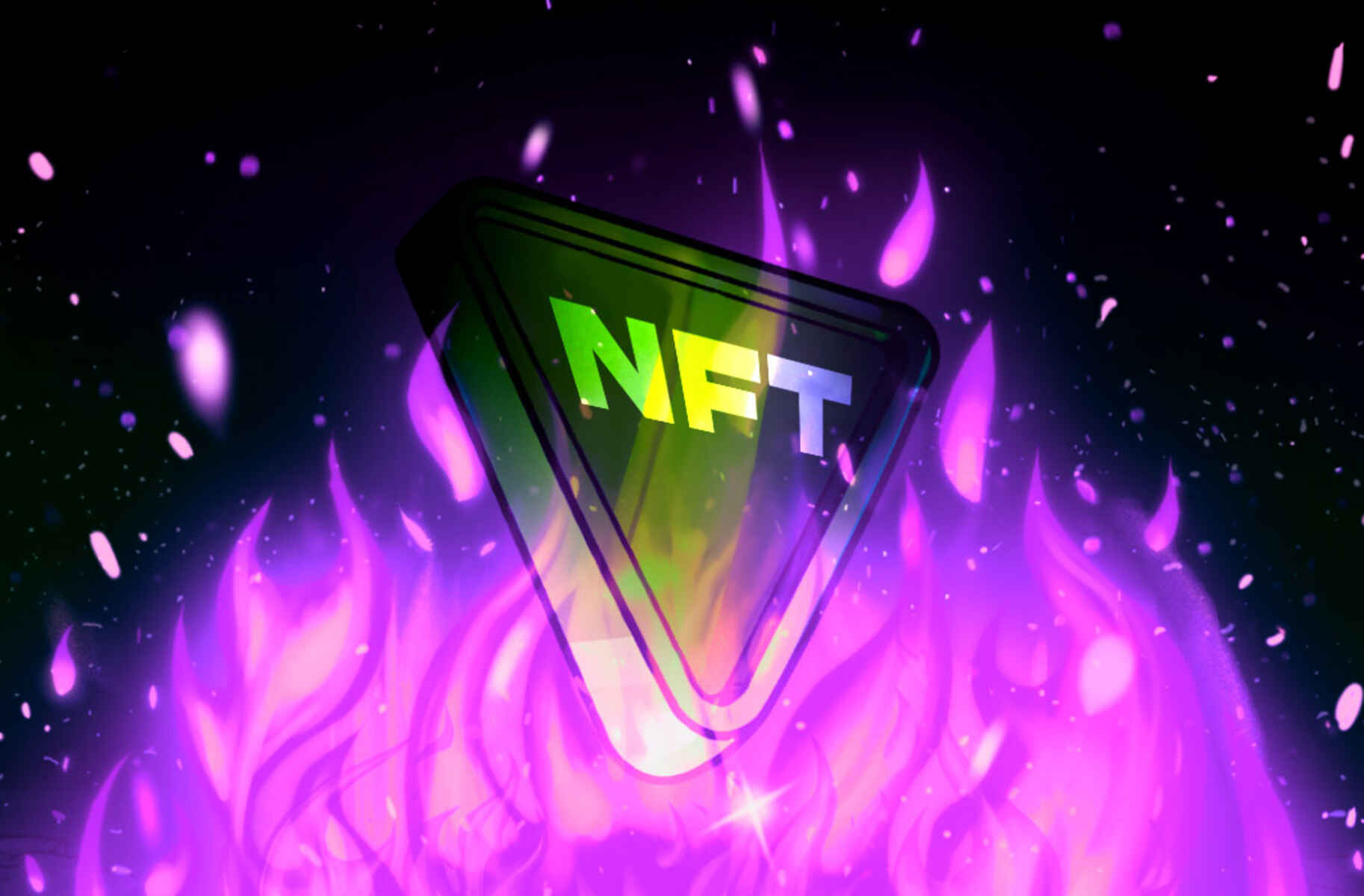Introduction
Welcome to the world of Non-Fungible Tokens (NFTs), where digital assets are revolutionizing the way we buy, sell, and collect unique items online. NFTs have gained significant popularity in recent years, with artists, creators, and collectors flocking to this new digital marketplace.
But as with any booming industry, there is a need for skilled professionals who can navigate the intricacies of this rapidly evolving field. One such role is that of an NFT salesman. In this article, we’ll explore what an NFT salesman does, why they are important, the skills and qualities required to succeed in this role, how to become an NFT salesman, the challenges they face, and some inspiring success stories.
Before diving into the world of NFT salesmen, let’s briefly understand what NFTs are. NFTs are unique digital assets that are authenticated and verified using blockchain technology. Unlike cryptocurrencies like Bitcoin or Ethereum, NFTs cannot be exchanged on a like-for-like basis. Each NFT is distinct and represents ownership of a specific item, artwork, music, collectible, or even virtual real estate.
The appeal of NFTs lies in their ability to provide proof of ownership and scarcity for digital assets. NFTs have opened doors for creators to monetize their digital content, allowing them to sell their artwork, music, or other digital creations directly to consumers, without the need for intermediaries.
Now, let’s take a closer look at the role of an NFT salesman and why they play a vital part in the NFT ecosystem.
Understanding NFTs
Before delving into the role of an NFT salesman, it’s important to have a solid understanding of what NFTs are and how they function. NFTs, or Non-Fungible Tokens, are unique digital assets that are stored and verified on a blockchain. Unlike cryptocurrencies such as Bitcoin or Ethereum, which are interchangeable and have the same value, NFTs represent ownership of a specific item or piece of content.
One of the defining characteristics of NFTs is their indivisibility. They cannot be divided or exchanged on a like-for-like basis. Each NFT has a distinct value and represents ownership of a specific digital asset, whether it’s a piece of art, music, video, or even virtual real estate.
The underlying technology that powers NFTs is blockchain. A blockchain is a decentralized digital ledger that records transactions across multiple computers. This ensures transparency, security, and immutability, making it an ideal technology for verifying the ownership and authenticity of digital assets.
What sets NFTs apart is their ability to establish proof of ownership and scarcity in the digital realm. Using blockchain technology, the ownership of an NFT can be easily tracked and verified, allowing creators to sell their digital works directly to consumers. This creates new opportunities for artists, musicians, and content creators to monetize their creations, while also providing collectors with a unique and valuable digital asset.
The value of an NFT is largely determined by factors such as the reputation and demand for the creator, the uniqueness and rarity of the digital asset, and the perceived value from the buyer’s perspective. While some NFTs have sold for astronomical amounts, it’s important to note that the market for NFTs is still relatively new and evolving, with fluctuating trends and prices.
It’s also worth mentioning that NFTs have sparked discussions around copyright, intellectual property rights, and environmental impact. As more artists and creators enter the NFT space, finding a balance between creativity, ownership, and sustainability becomes paramount.
Now that we have a solid understanding of what NFTs are, let’s explore the role of an NFT salesman and why they are an integral part of the NFT ecosystem.
What Is an NFT Salesman?
An NFT salesman is a professional who specializes in the buying and selling of Non-Fungible Tokens. They play a crucial role in the NFT ecosystem by helping artists, creators, and collectors navigate the complexities of the digital marketplace and maximize the value of their NFTs.
The primary duty of an NFT salesman is to connect the right buyers with the right NFTs. They act as intermediaries between sellers and buyers, facilitating transactions and ensuring a smooth exchange of digital assets. NFT salesmen have a deep understanding of the NFT market, trends, and pricing, allowing them to accurately assess the value of NFTs and negotiate favorable deals for their clients.
Additionally, NFT salesmen provide guidance and advice to artists and creators looking to enter the NFT market. They help artists understand the potential of NFTs as a medium for monetizing their digital creations and develop effective marketing and sales strategies. They may also assist in the creation of NFT listings, ensuring that the assets are accurately represented and appealing to potential buyers.
Furthermore, NFT salesmen often have an extensive network of contacts within the NFT community. They actively engage with collectors, investors, and influencers to promote and showcase their clients’ NFTs, increasing their visibility and desirability in the marketplace. This networking aspect is crucial in maximizing exposure and driving demand for NFTs.
An NFT salesman must also stay updated with the latest developments and trends in the NFT space. They continuously monitor the market, identifying emerging artists, rising stars, and upcoming trends. By staying ahead of the curve, they can effectively advise their clients and capitalize on new opportunities.
It’s important to note that an NFT salesman should possess strong communication and negotiation skills. They must effectively present and communicate the value of NFTs to potential buyers, building trust and confidence in the digital assets. Negotiation skills come into play when striking deals and ensuring both parties are satisfied with the transaction.
In summary, an NFT salesman is a knowledgeable professional who plays a vital role in the NFT marketplace. They connect buyers and sellers, provide guidance and advice, and contribute to the growth and success of artists, creators, and collectors in the NFT space.
Why NFT Salesmen are Important
NFT salesmen play a crucial role in the NFT ecosystem, offering invaluable expertise and services that benefit both artists and collectors. Let’s explore why NFT salesmen are important:
1. Market Knowledge and Expertise: Navigating the NFT market requires a deep understanding of trends, pricing, and buyer preferences. NFT salesmen possess this knowledge and expertise, allowing them to provide accurate valuations, negotiate favorable deals, and guide their clients toward making informed decisions.
2. Time-Saving and Efficiency: Selling NFTs can be a time-consuming process, requiring artists and creators to manage listings, interact with potential buyers, and handle transactions. NFT salesmen take on these tasks, saving artists valuable time and allowing them to focus on their craft while the salesmen handle the intricacies of the marketplace.
3. Maximizing Exposure and Sales: NFT salesmen have a wide network of contacts in the NFT community, including collectors, investors, and influencers. They actively promote their clients’ NFTs, increasing their visibility and driving demand. Through strategic marketing and networking, NFT salesmen help artists reach a larger audience and maximize their sales potential.
4. Guidance and Support: For artists and creators new to the NFT space, the guidance and support of an NFT salesman are invaluable. Salesmen provide advice on creating compelling NFT listings, setting appropriate prices, and developing effective marketing strategies. They act as mentors, helping artists navigate the intricacies of the marketplace and make informed decisions.
5. Establishing Trust and Credibility: The NFT market can be daunting for both artists and collectors, given its relative newness and the prevalence of scams. NFT salesmen play a crucial role in establishing trust and credibility. By vetting NFTs, ensuring their authenticity, and handling transparent and secure transactions, salesmen contribute to building trust within the NFT community.
6. Valuing Artists’ Work: NFT salesmen help artists and creators accurately price their digital assets by considering factors such as reputation, scarcity, and demand. This ensures that artists receive fair compensation for their work and allows them to continue creating and contributing to the NFT space.
7. Promoting Diversity and Inclusivity: NFT salesmen actively support and promote diverse artists, creators, and voices in the NFT space. They help amplify underrepresented artists, opening doors for them to gain recognition and success in the industry.
In essence, NFT salesmen bring professionalism, expertise, and a network of contacts to the NFT marketplace. They play a vital role in connecting artists, creators, and collectors, enabling the growth and success of the NFT ecosystem.
Skills and Qualities of an NFT Salesman
Being an effective NFT salesman requires a unique set of skills and qualities. Let’s explore some of the key skills and qualities that contribute to success in this role:
1. Deep Understanding of NFTs: An NFT salesman must have a comprehensive understanding of NFTs, including how they work, their value proposition, and emerging trends in the market. This knowledge allows them to accurately assess the worth of NFTs and provide valuable insights to their clients.
2. Market Knowledge: Keeping up with the rapidly evolving NFT market is crucial. A successful NFT salesman stays informed about pricing dynamics, popular digital assets, and shifts in buyer preferences. This knowledge provides them with a competitive edge and enhances their ability to connect buyers with the right NFTs.
3. Networking Skills: Building and maintaining a strong network within the NFT community is essential. NFT salesmen actively engage with collectors, investors, artists, and influencers, expanding their reach and establishing valuable connections. These networks enable them to promote their clients’ NFTs effectively and generate interest in their listings.
4. Negotiation Abilities: Negotiation skills are key in securing favorable deals for clients. NFT salesmen must be adept at navigating the negotiation process, ensuring that both buyers and sellers are satisfied with the transaction. Effective negotiation skills contribute to building trust and long-term partnerships.
5. Communication and Presentation: Clear and effective communication is essential for conveying the value and appeal of NFTs to potential buyers. NFT salesmen should be skilled in presenting digital assets in a compelling manner, highlighting their unique features and addressing any questions or concerns that buyers may have.
6. Trustworthiness and Transparency: In a nascent industry like NFTs, trust and transparency are paramount. NFT salesmen must be trustworthy and act with integrity, ensuring that the NFTs they represent are authentic and accurately represented. By prioritizing transparency, they build credibility and foster long-term relationships with clients and stakeholders.
7. Adaptability and Resilience: The NFT market is characterized by rapid changes and evolving trends. Successful NFT salesmen are adaptable and resilient, able to navigate through shifts in the market and effectively respond to new opportunities and challenges. They embrace change and are proactive in staying ahead of the curve.
8. Passion for Art and Creativity: Having a genuine passion for art and creativity is an essential quality for an NFT salesman. This passion fuels their drive to promote and support artists, allowing them to connect with clients on a deeper level and advocate for the value of digital art and collectibles.
9. Business Acumen: While NFTs are driven by creativity, successful NFT salesmen also have a solid understanding of the business aspects of the market. They possess strong analytical skills, financial literacy, and the ability to identify promising investment opportunities for clients.
In summary, the skills and qualities of an NFT salesman combine technical expertise, market knowledge, networking abilities, communication skills, and a passion for art. These qualities enable them to thrive in the dynamic and competitive world of NFT sales, helping artists and collectors navigate the digital marketplace and achieve their goals.
How to Become an NFT Salesman
If you are passionate about the NFT space and want to become an NFT salesman, here are the steps you can take to pursue this career:
1. Educate Yourself: Start by building a solid foundation of knowledge about NFTs. Familiarize yourself with how NFTs work, the underlying technology, market trends, and popular platforms. Stay updated with the latest news and developments in the NFT space.
2. Understand the Art and Collectibles Market: Gain an understanding of the art and collectibles market, both in the traditional and digital realms. Familiarize yourself with different art styles, artist profiles, and collector preferences. This knowledge will help you accurately assess the value of NFTs and connect with the right buyers.
3. Develop Sales and Networking Skills: Cultivate your sales and networking skills. This includes enhancing your communication, negotiation, and presentation abilities. Attend NFT conferences, join online communities, and engage with artists, collectors, and influencers. Building a strong network will be instrumental in your success as an NFT salesman.
4. Gain Industry Experience: Start by gaining experience in the NFT industry. This can be accomplished by working in related roles such as assisting NFT artists, collaborating with NFT platforms, or interning with NFT marketplaces. This hands-on experience will provide valuable insights into the dynamics of the market and allow you to learn from seasoned professionals.
5. Stay Updated with Market Trends: Stay constantly updated with the ever-changing NFT market. Keep an eye on emerging artists, new trends, and technological advancements. This knowledge will keep you ahead of the curve and enable you to provide the most up-to-date advice and guidance to your clients.
6. Build a Strong Online Presence: Establishing an online presence is crucial in the digital realm. Create a professional website, optimize your social media profiles, and regularly share relevant content about NFTs. Showcase your knowledge and expertise to attract potential clients and build credibility in the industry.
7. Seek Mentorship: Seek mentorship from experienced NFT salesmen or professionals in the NFT space. Learn from their insights, seek guidance on best practices, and leverage their network to expand your own connections within the industry.
8. Obtain Relevant Certifications: Consider obtaining certifications or completing courses related to NFTs, blockchain technology, and sales techniques. These certifications will enhance your credibility and demonstrate your commitment to continuous learning and professional development.
9. Provide Exceptional Service: Dedicate yourself to providing exceptional service to your clients. Prioritize transparency, professionalism, and ethical conduct in all your interactions. Go the extra mile to understand your client’s needs and help them achieve their goals in the NFT marketplace.
10. Continuously Evolve: The NFT market is dynamic and constantly evolving. Stay adaptable and open to embracing new technologies, platforms, and trends. Continuously educate yourself, improve your skills, and adjust your strategies to stay relevant in this rapidly changing industry.
By following these steps and constantly honing your skills, you can position yourself as a knowledgeable and trusted NFT salesman, ready to assist artists and collectors in navigating the exciting world of NFTs.
Challenges Faced by NFT Salesmen
While being an NFT salesman can be a rewarding and exciting career, there are several challenges that come with the role. Let’s explore some of the key challenges faced by NFT salesmen:
1. Market Volatility: The NFT market is known for its volatility, with prices of digital assets experiencing significant fluctuations. NFT salesmen must be prepared to navigate this volatility and adapt their strategies accordingly. They need to stay updated and informed about market trends to accurately assess the value of NFTs.
2. Competition: With the increasing popularity of NFTs, the competition among NFT salesmen has also grown. Standing out in the crowd and attracting clients can be challenging. Salesmen must differentiate themselves by providing exceptional service, building a strong network, and showcasing their industry knowledge and expertise.
3. Ethereum Gas Fees: High gas fees on the Ethereum blockchain can pose a challenge for NFT salesmen. These fees can make transactions more costly and impact the profitability of sales. NFT salesmen must factor in these fees when assessing valuations and negotiating deals, ensuring that both buyers and sellers are aware of the associated costs.
4. Lack of Regulation: The NFT market is relatively new, and regulatory frameworks are still catching up. The absence of clear regulations can create a sense of uncertainty for NFT salesmen and their clients. Salesmen must keep themselves informed about legal developments and ensure compliance with existing laws to protect the interests of their clients.
5. Counterfeit NFTs and Scams: As the popularity of NFTs grows, so does the risk of counterfeit NFTs and scams. NFT salesmen must exercise due diligence in verifying the authenticity of the digital assets they represent and educating their clients about potential risks. Building trust and credibility is crucial in mitigating this challenge.
6. Tech Infrastructure: The NFT space heavily relies on technology infrastructure, including blockchain platforms and marketplaces. Technical issues or system failures can disrupt transactions and impact the sales process. NFT salesmen must stay updated with the latest technological advancements and be prepared to adapt to any technical challenges that arise.
7. Evolving Market Dynamics: The NFT market is constantly evolving, with new platforms, trends, and marketplaces emerging regularly. NFT salesmen must keep up with these dynamics, continuously learning and exploring new opportunities. Staying informed and adaptable is crucial to remain competitive in the rapidly changing NFT ecosystem.
8. Educating Clients: Understanding the value and potential of NFTs might not come naturally to all clients. NFT salesmen often face the challenge of educating clients about the benefits and risks associated with NFT investments. Effective communication and clear explanations are essential in helping clients make informed decisions.
9. Environmental Concerns: The energy consumption associated with blockchain technology, particularly on the Ethereum network, has raised concerns regarding the environmental impact of NFTs. NFT salesmen must be prepared to address these concerns and educate clients about the ongoing efforts to reduce the carbon footprint of NFT transactions.
10. Maintaining Relevance: The NFT market is dynamic, with new trends and innovations emerging regularly. NFT salesmen must continuously update their skills, knowledge, and strategies to remain relevant in the industry. Adapting to new platforms, exploring emerging art forms, and embracing innovative marketing techniques are essential to maintain a competitive edge.
By acknowledging and addressing these challenges, NFT salesmen can navigate the ever-evolving landscape of the NFT market and continue to serve their clients effectively.
Success Stories of NFT Salesmen
In the rapidly growing world of NFTs, there have been several success stories of NFT salesmen who have made a significant impact in the industry. Let’s explore a few examples of successful NFT salesmen:
1. Vignesh Sundaresan (Metakovan): Vignesh Sundaresan, popularly known as Metakovan, is an entrepreneur and investor who made headlines in March 2021 when he purchased Beeple’s artwork “Everydays: The First 5000 Days” for a whopping $69.3 million. Metakovan’s strategic investments in NFTs and his role as the founder of Metapurse, a crypto-based investment firm, have positioned him as a leading figure in the NFT art sales space.
2. WhaleShark: WhaleShark, an anonymous collector and NFT salesman, has gained prominence in the NFT community for his unique approach to collecting and trading digital assets. Known for his large collection of NFTs, WhaleShark has leveraged his extensive portfolio to issue WHALE tokens, allowing others to invest in his collection. This innovative approach has garnered attention and established WhaleShark as a key player in the NFT investor space.
3. Pranksy: Pranksy, also known as Steve, is a prominent NFT collector and salesman who has made a name for himself in the NFT art market. Pranksy has successfully collected and sold some of the most sought-after NFT artworks, collaborating with prominent artists and participating in high-profile auctions. Through his efforts, Pranksy has not only built a significant art collection but also contributed to the growth and recognition of NFT artists.
4. WhaleSharkDAO: WhaleSharkDAO is a decentralized autonomous organization (DAO) spearheaded by WhaleShark, the aforementioned NFT collector and salesman. WhaleSharkDAO has made waves in the NFT space by actively pooling resources and acquiring significant NFT collections. Through collective decision-making and strategic investments, WhaleSharkDAO aims to shape the NFT market and support emerging artists and creators.
5. Jose Delbo: Jose Delbo, a renowned comic book artist, collaborated with NFT platform Ethernity Chain to release digital art collectibles based on iconic characters such as Wonder Woman and Batman. With the help of NFT salesmen and strong promotion, Delbo’s NFTs gained immense popularity and success. The collaboration showcases the potential for established artists and creators to embrace the NFT space and reach a new audience.
6. Robbie Tilton: Robbie Tilton is an NFT salesman who focuses on championing underrepresented artists and creators in the NFT space. By actively promoting and representing artists from marginalized communities, Tilton has succeeded in bringing attention to their talent and expanding their reach within the NFT market. Through his efforts, Tilton has contributed to a more diverse and inclusive NFT ecosystem.
These success stories highlight the diverse paths and strategies that NFT salesmen have pursued to carve out their niche in the industry. Their vision, expertise, and entrepreneurial spirit have propelled them to the forefront of the NFT marketplace, resulting in significant accomplishments and contributions to the growth and recognition of NFT artists and creators.
Conclusion
The role of an NFT salesman is pivotal in the ever-evolving world of Non-Fungible Tokens. NFT salesmen bring together artists, creators, and collectors, providing them with the expertise, guidance, and connections needed to navigate the intricacies of the digital marketplace. They play a significant role in maximizing the value of NFTs and driving the growth of the NFT ecosystem.
Understanding NFTs and the underlying technology is essential for an NFT salesman. They must stay updated with market trends, pricing dynamics, and emerging platforms to accurately assess the value of digital assets and guide clients in making informed decisions. By building a strong network within the NFT community, NFT salesmen can effectively promote and connect buyers with the right NFTs.
NFT salesmen face challenges such as market volatility, competition, and the need to educate clients about the benefits and risks of NFT investments. Adapting to changing trends and technological advancements is crucial for their success. Despite these challenges, there have been inspiring success stories of NFT salesmen who have made a significant impact in the industry, either through strategic investments, innovative approaches, or championing underrepresented artists.
To become an NFT salesman, aspiring professionals need to educate themselves, gain industry experience, develop networking and sales skills, and continually evolve with the market. By providing exceptional service, being trustworthy, and staying informed, NFT salesmen can thrive in this dynamic and exciting field.
The world of NFTs is revolutionizing the way we buy, sell, and collect digital assets. As the popularity of NFTs continues to grow, the role of NFT salesmen becomes increasingly important. By serving as knowledgeable guides and connectors in the NFT marketplace, these professionals contribute to the continued success and innovation of the NFT ecosystem.

























